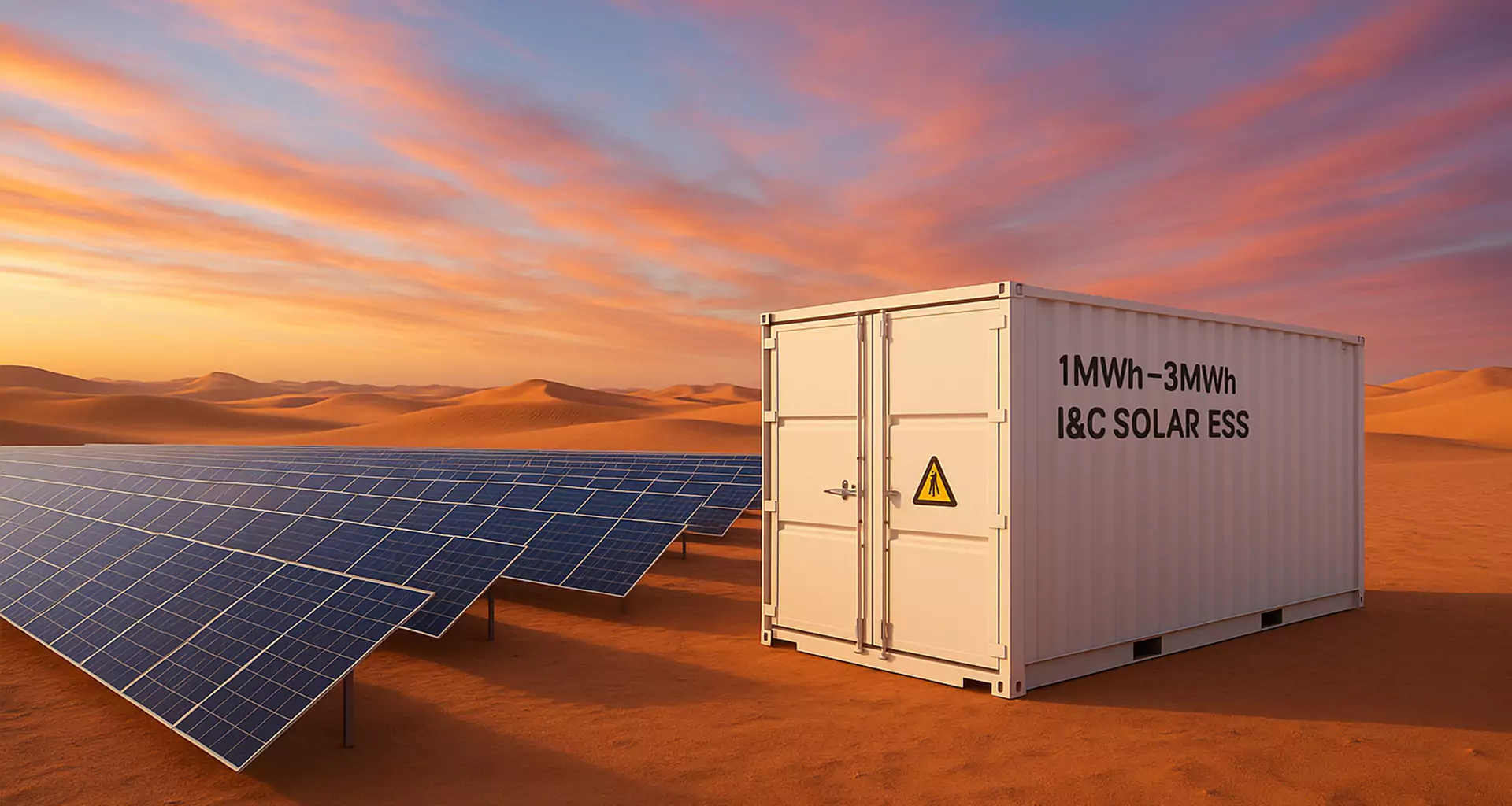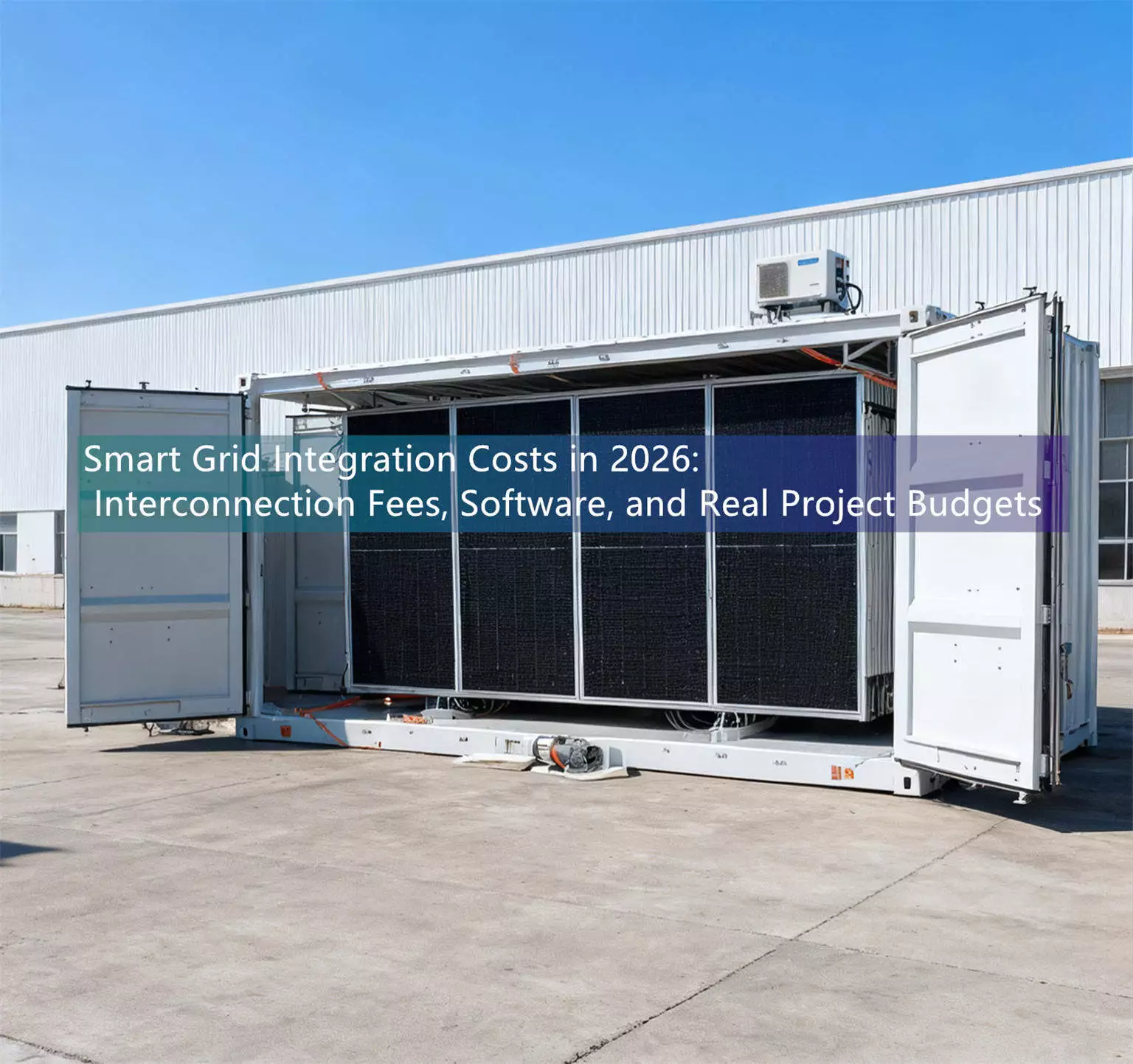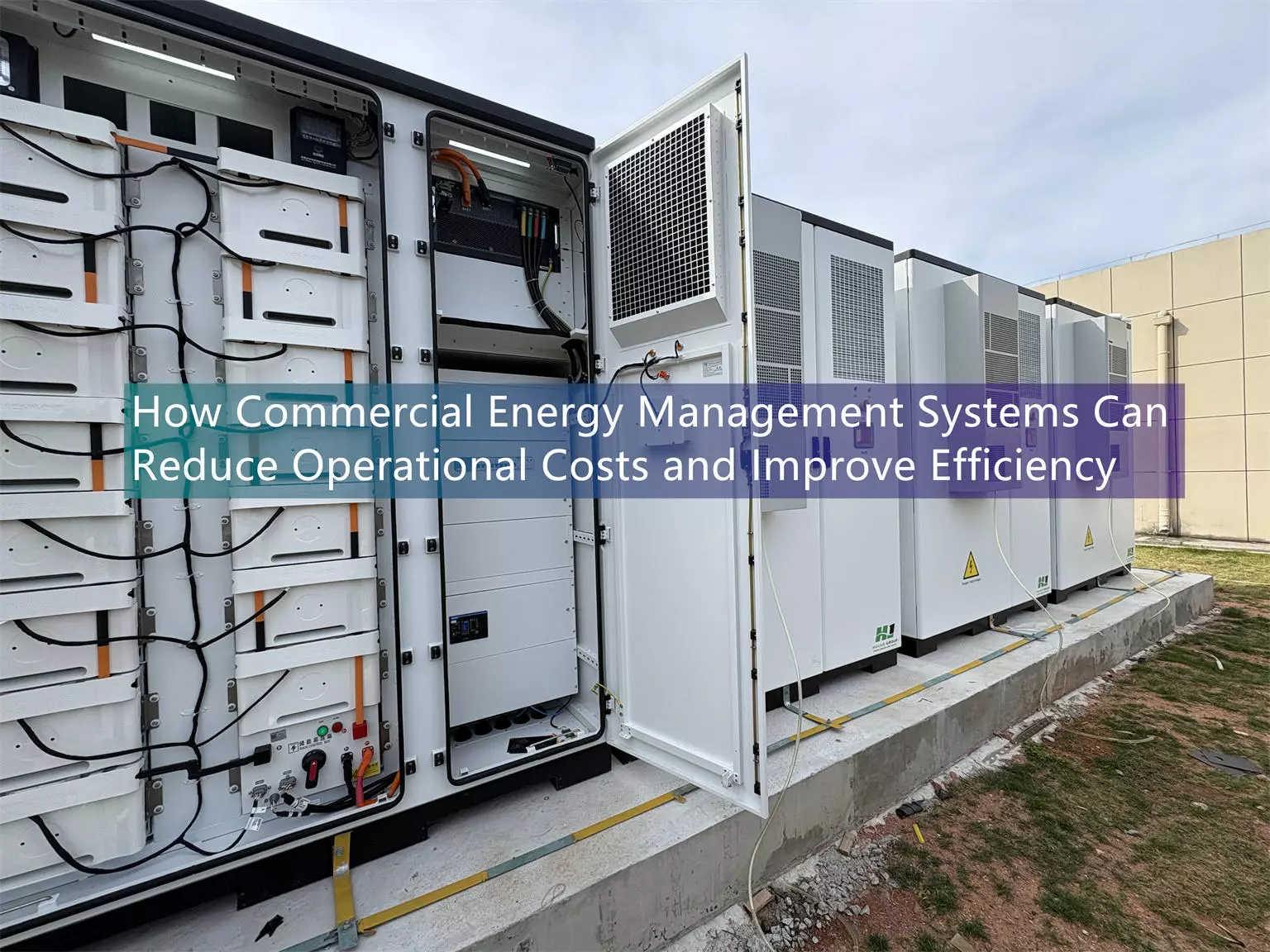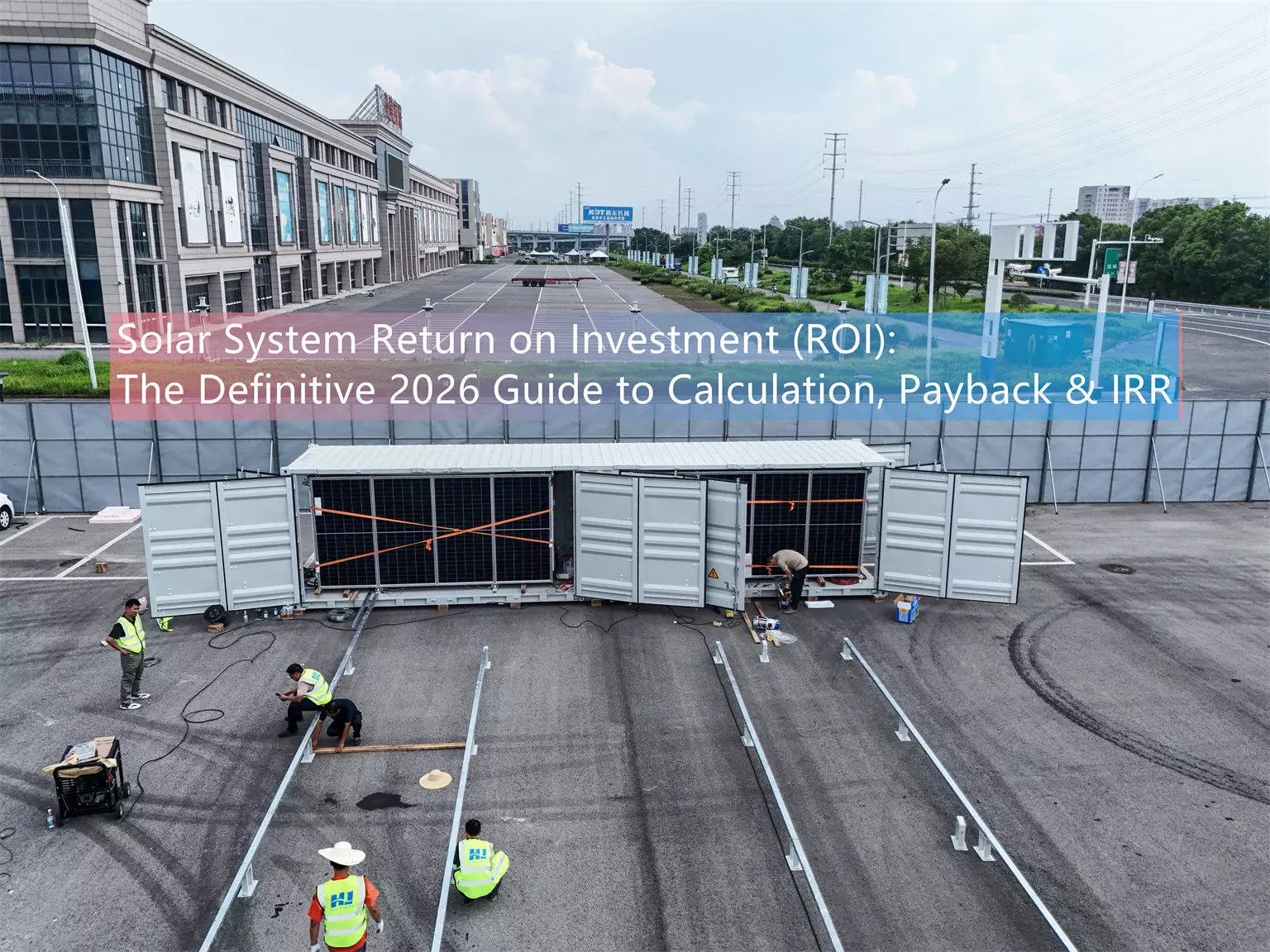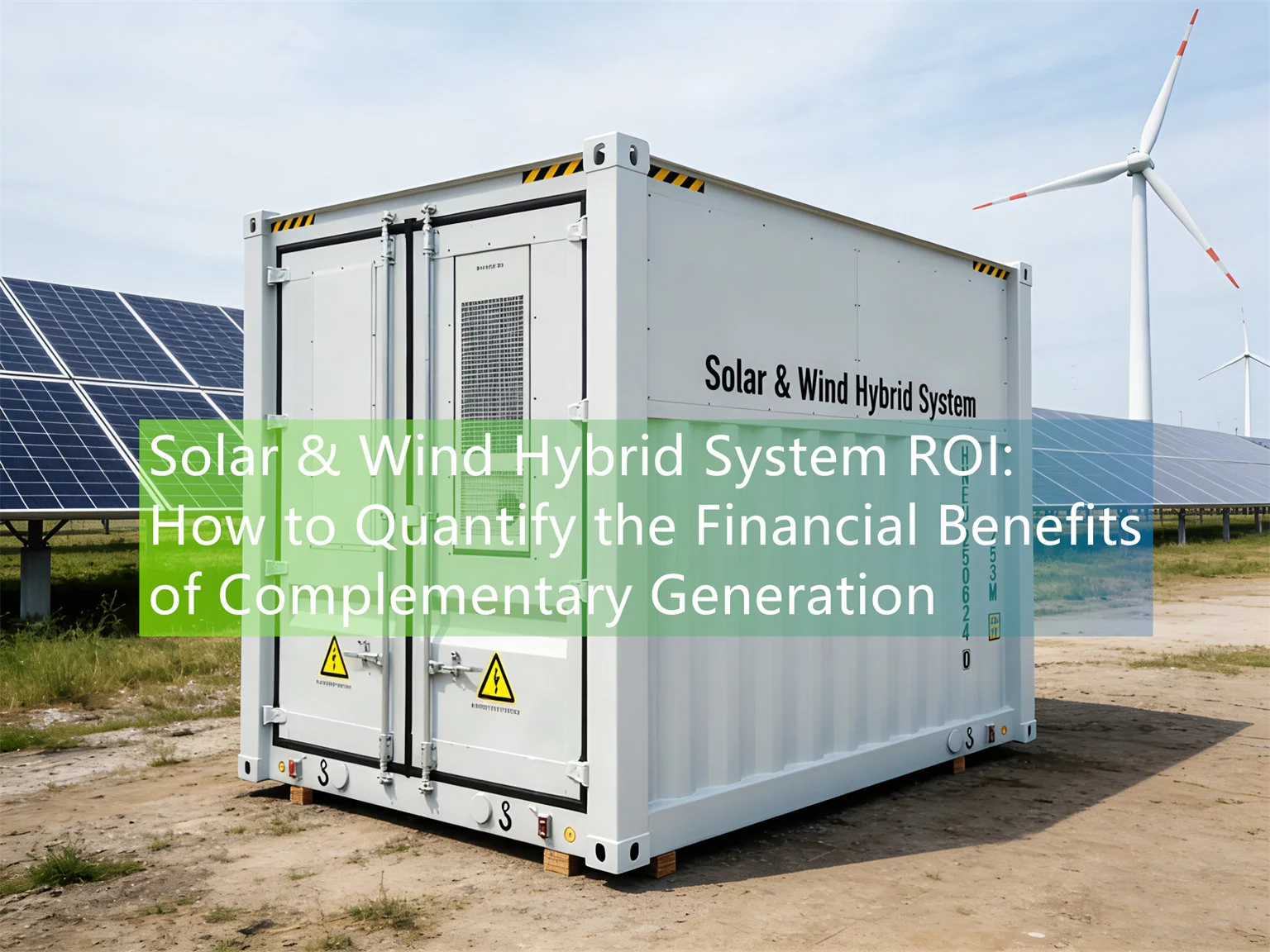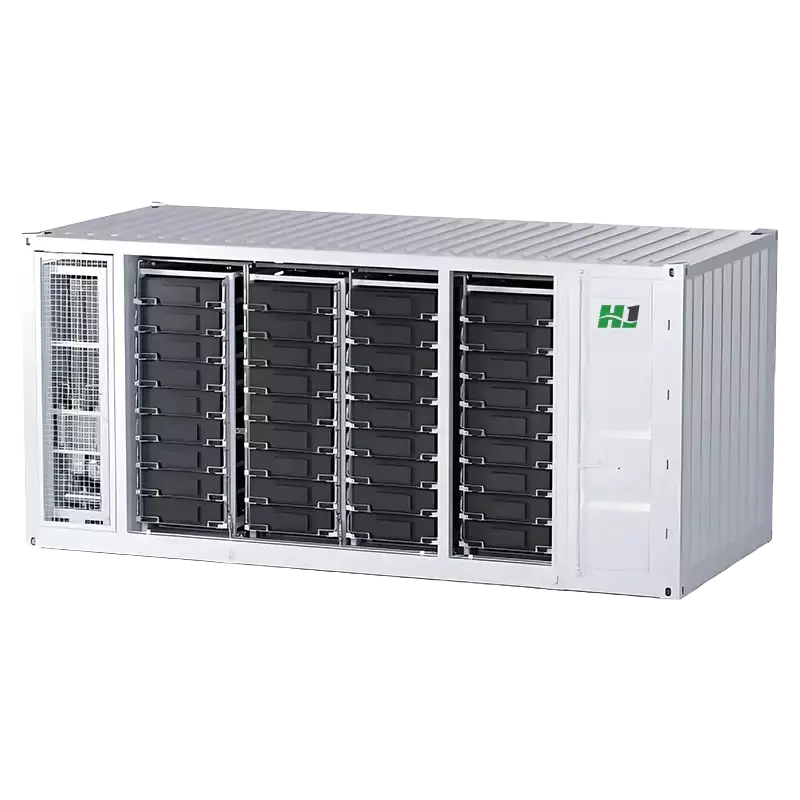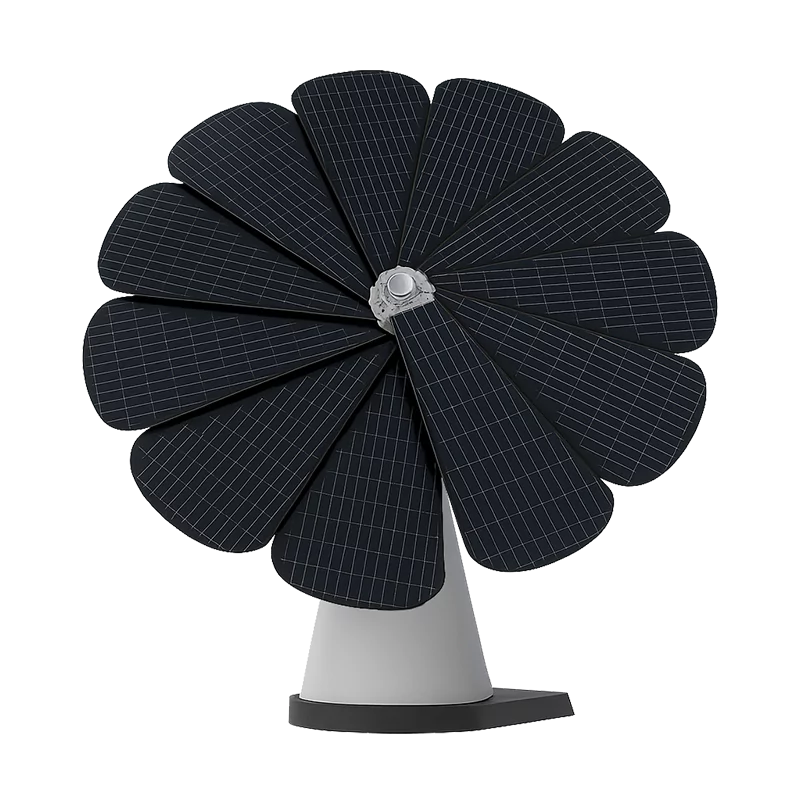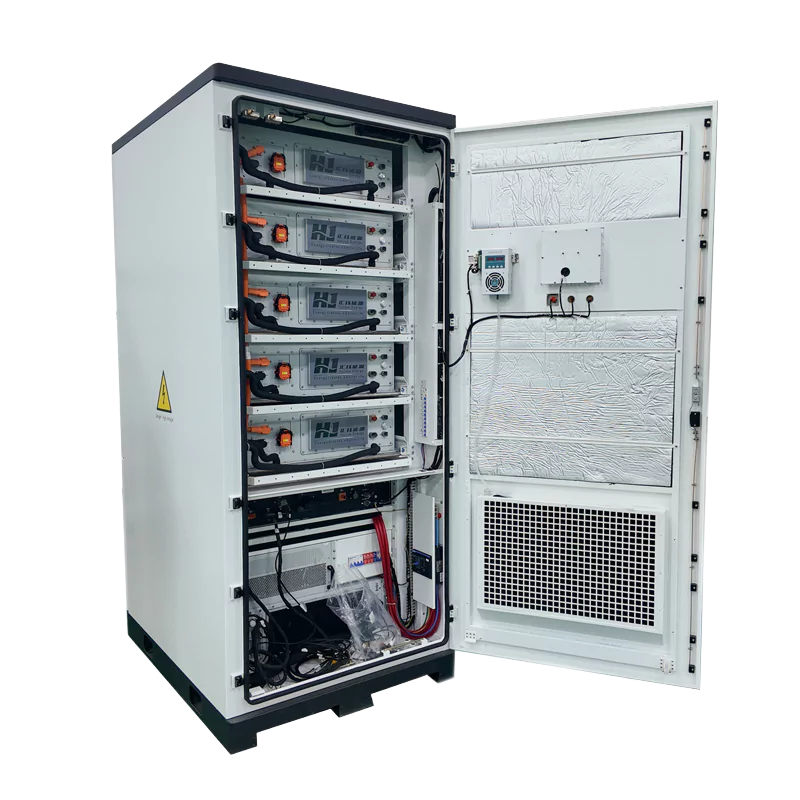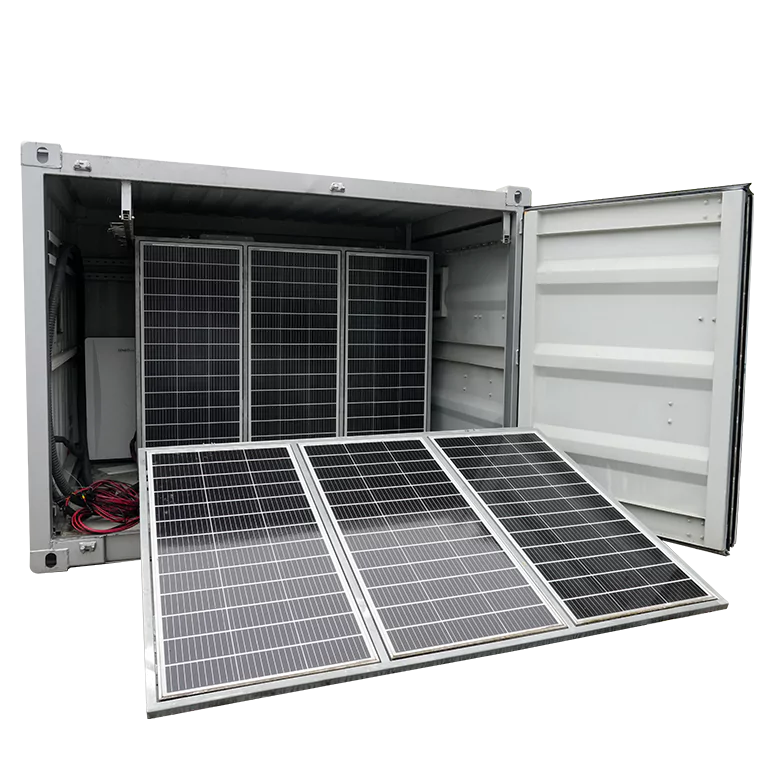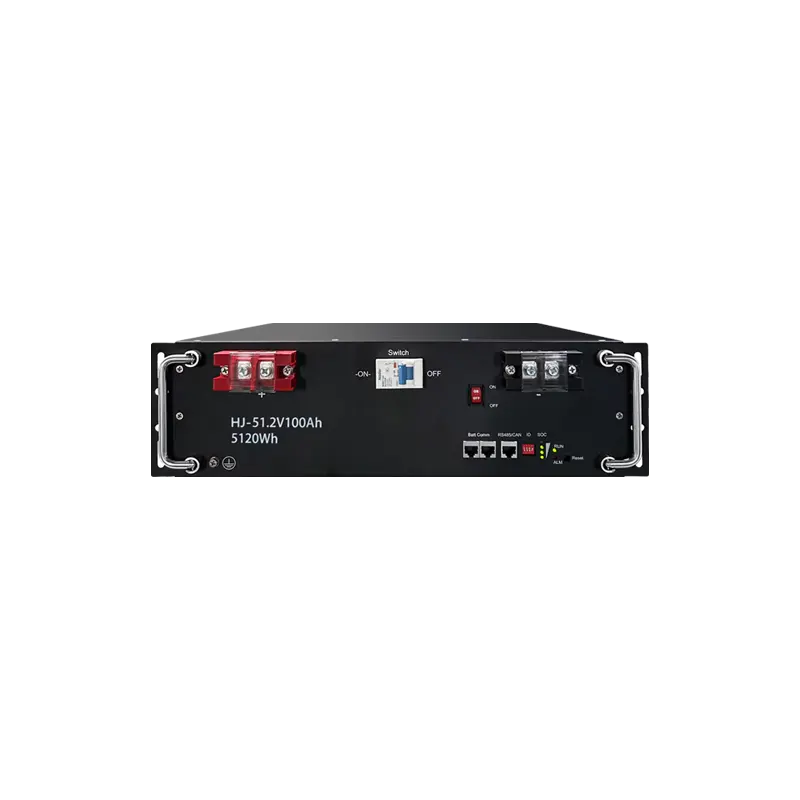German BTS Energy Efficiency: How EU Ecolabel Certification Cuts 40% OPEX in Germany’s Energy Crisis
In light of growing global concern for sustainability, the telecommunication industry has been under intense scrutiny to adopt more efficient energy solutions. In Europe, as the energy landscape becomes more complex, the EU Ecolabel for Base Station Energy Efficiency has emerged as a leading standard for telecommunication operators to ensure compliance and support environmental protection. For operators in Germany, France, the Nordics, and Central and Eastern Europe, EU Ecolabel certification is not only a requirement – it’s an energy management, cost savings, and competitive edge investment.
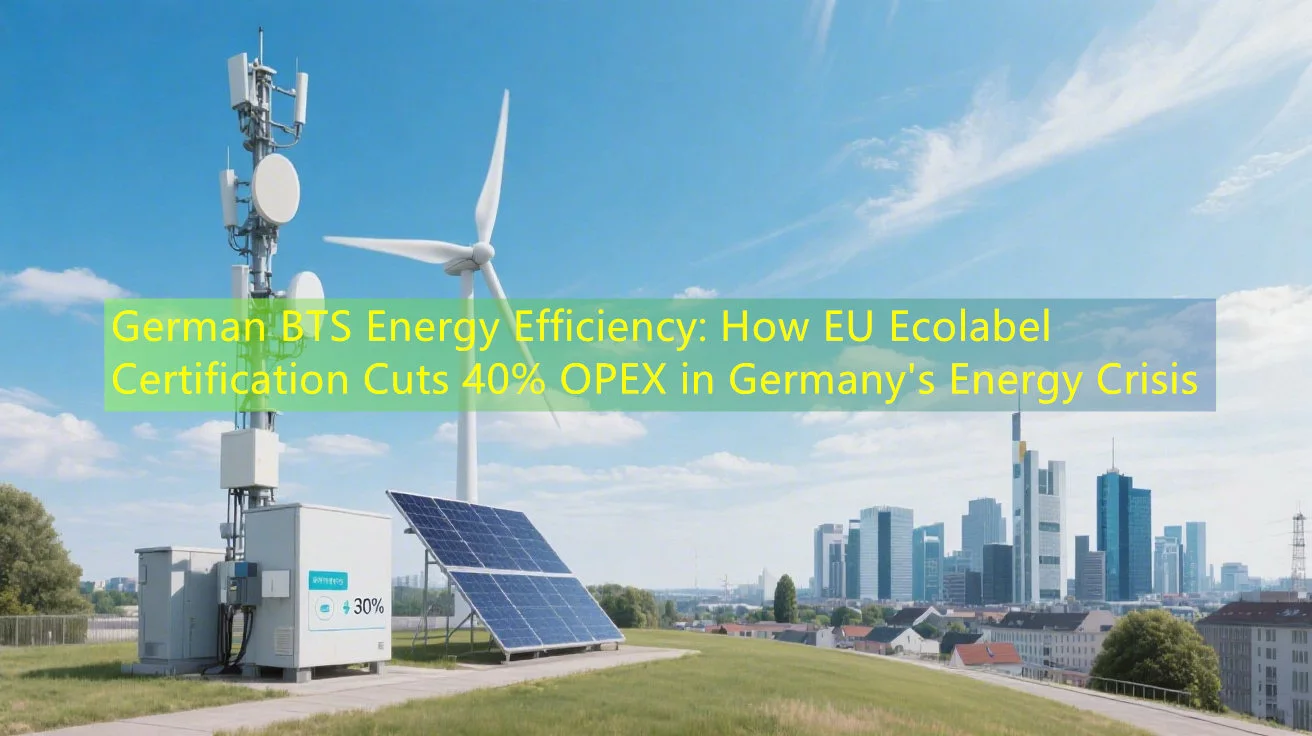
HighJoule’s EU Ecolabel-compliant energy solutions are transforming telecom infrastructure, with telecommunications operators achieving up to 40% energy savings with Europe’s most stringent energy standards compliance. This article will explain the importance of EU Ecolabel for base stations in Germany, the technology driving energy efficiency, and how HighJoule’s solutions are transforming the future of telecom networks.
What is EU Ecolabel for Base Station Energy Efficiency in Germany?
EU Ecolabel (or “EU Flower”) is Europe’s highest environmental seal of approval, given to products and services that fulfill strict environmental and energy efficiency criteria. Base station (BTS) energy systems are required to meet the following criteria in order to be certified:
- Life cycle analysis: Minimizing environmental footprint from raw materials extraction through recycling.
- Energy efficiency standards: Certification requires BTS energy systems to be 30–40% more energy efficient than conventional systems.
- Renewable energy integration: A minimum of 30% of the energy must be from renewable sources such as solar, wind or hydro.
- Smart grid compatibility: The assurance that the system is dynamic in load balancing and grid stability. For example, Elisa’s Finnish base stations use batteries to participate in grid peak shifting.
To gain EU Ecolabel certification, products are required to pass six stages of assessment by an independent agency to guarantee that they fulfill EU environmental and energy efficiency criteria.
Why German Base Stations Require EU Ecolabel Certification
While Germany is running to achieve carbon-neutral infrastructure by 2030, EU Ecolabel certification has become an integral part of telecom operators’ compliance strategies. More than just a legal requirement, the certification not only provides telecom operators with a competitive advantage but enables them to achieve sustainable goals while maximizing operational efficiency.
For operators in Germany, France, and other European countries, EU Ecolabel is extensively embedded with other national and regional measures, such as Germany’s Energiewende policy, which requires an 80% renewable energy target for 2030. Failure to comply with energy efficiency standards can result in severe consequences, including fines and market exclusion. In addition, EU Ecolabel-certified products take precedence in public procurement, making it more convenient for operators to secure contracts and funding.
HighJoule’s Flexible Solutions Enable EU Ecolabel Compliance
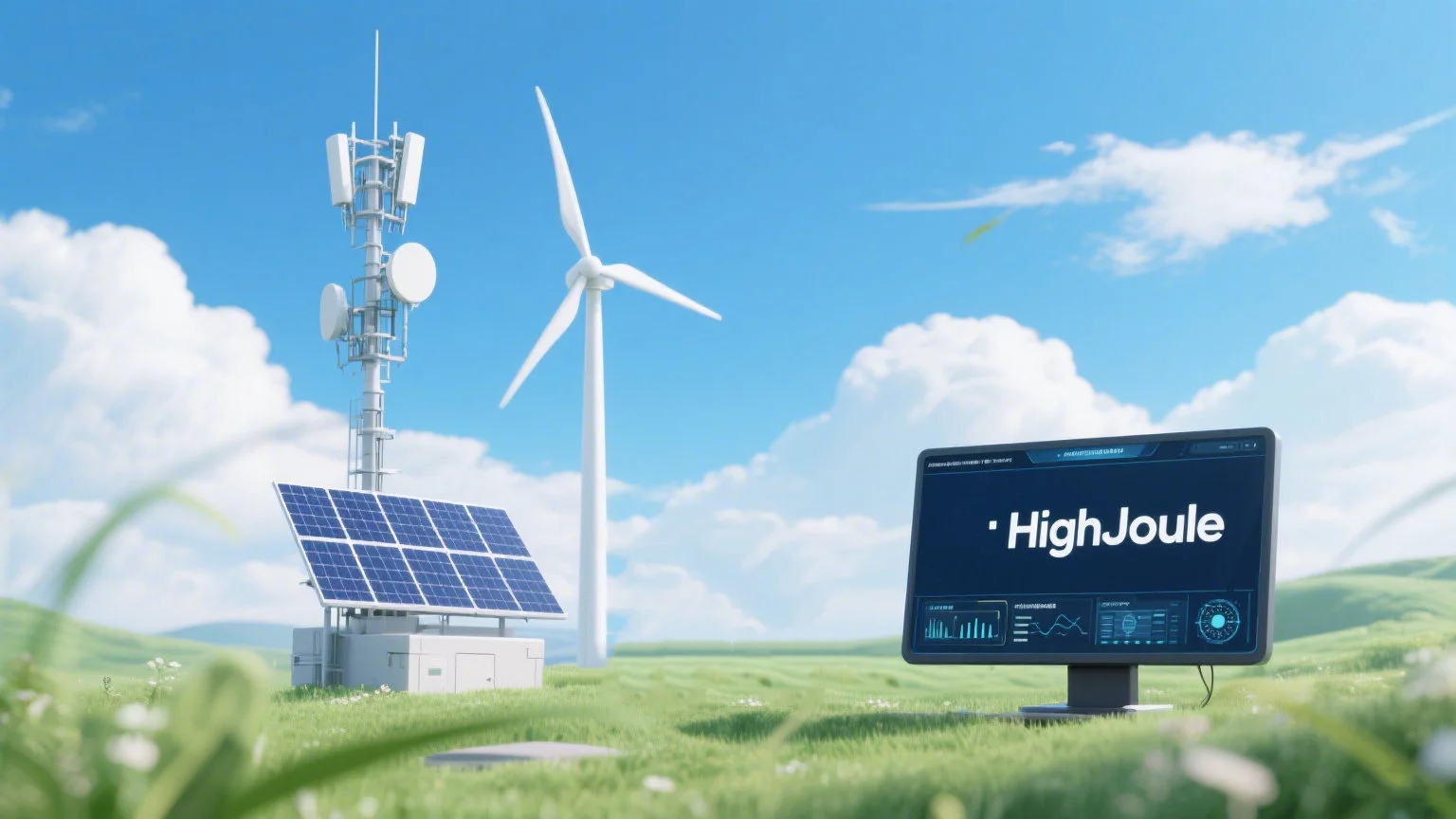
HighJoule’s energy-saving solutions not only meet EU Ecolabel, but set the benchmark for energy saving, operational efficiency and scalability. Below are the ways in which HighJoule’s hybrid energy system brings design advantages to German base stations as well as other European markets:
1. Energy Shortages and Grid Instability
In Germany and France, aging power grids often cannot meet peak loads. HighJoule’s solar and battery hybrid energy solution combines solar panels, lithium-ion batteries, and smart grid integration to provide more than 12 hours of power during a blackout. This approach maintains telecom infrastructure operational when a traditional blackout occurs, achieving up to 40% greater energy savings than traditional solutions.
2. Compliance with Renewable Energy Adoption
Given the emphasis on renewable energy, especially in the Nordic market, HighJoule’s system maximizes multiple sources of energy (solar, wind, hydro). HighJoule’s AI-based optimization software maximizes the utilization of such energy sources from renewables, ensuring a reliable supply of energy despite fluctuating generation of power.
3. Compliance with EU Energy Efficiency Standards
The EU Code of Conduct on Energy Efficiency of Broadband Equipment requires 90% of new equipment to be of high energy efficiency class. HighJoule’s solution exceeds these limits, offering 30% less standby power and 20% lower running costs than non-certified systems.
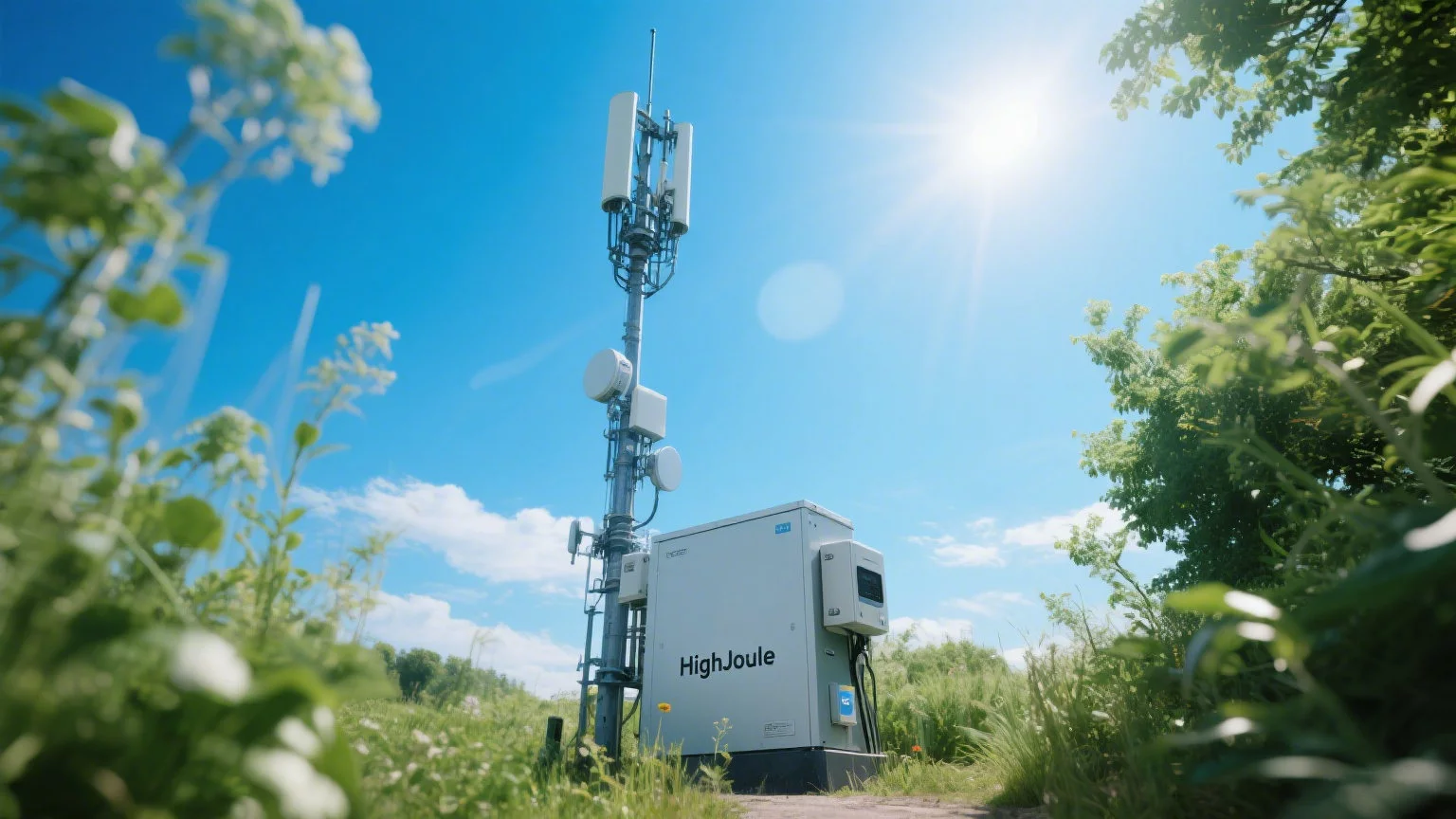
HighJoule EU Ecolabel Products’ Key Features and Applications
| Products | Key Features | Application Scenarios | Energy Savings Compared to Conventional Systems |
|---|---|---|---|
| HJSG-R01 Hybrid Energy Station | 95% system efficiency; 10-year battery life; accommodates solar/wind integration | Rural base station in Schleswig-Holstein, Germany (re-fitted to Ericsson equipment) | 35–40% |
| HJSG-D02 Outdoor Cabinet | 5–15 kW output; modular for easy upgrade; IP67-rated design | Urban micro base station in Paris, France (matched with Nokia radio unit) | 25–30% |
| HJSG-S01 Smart Grid Controller | Load balancing based on AI; real-time energy monitoring | Stockholm, Sweden base station (streamlining Telia’s 5G network) | 15–20% |
HighJoule vs. Industry Approaches: Real Case Studies
1. Ericsson’s Energy Efficiency Reduction in Germany
In 2024, Vodafone deployed Ericsson’s tri-band 5G RRUs in Germany, achieving a 40% reduction in energy consumption at the base station. By integrating solar and battery backup systems, operators can potentially achieve an additional 15% energy savings, converting passive energy consumption into active renewable energy contributions.
2. Telia’s Solar Base Station in Estonia
Telia’s solar-powered base station in Estonia generates 1.5 GWh of electricity annually. By incorporating solar and battery systems, energy efficiency has been improved by 8–10%, which is equivalent to providing power to an additional 120 homes per year.
3. Vodafone’s O-RAN Test in Germany
In a recent test, Vodafone Germany’s O-RAN technology helped reduce base station energy consumption by 40%. The integration of AI-powered energy management systems has further optimized energy use, resulting in a 12% additional reduction in energy consumption.
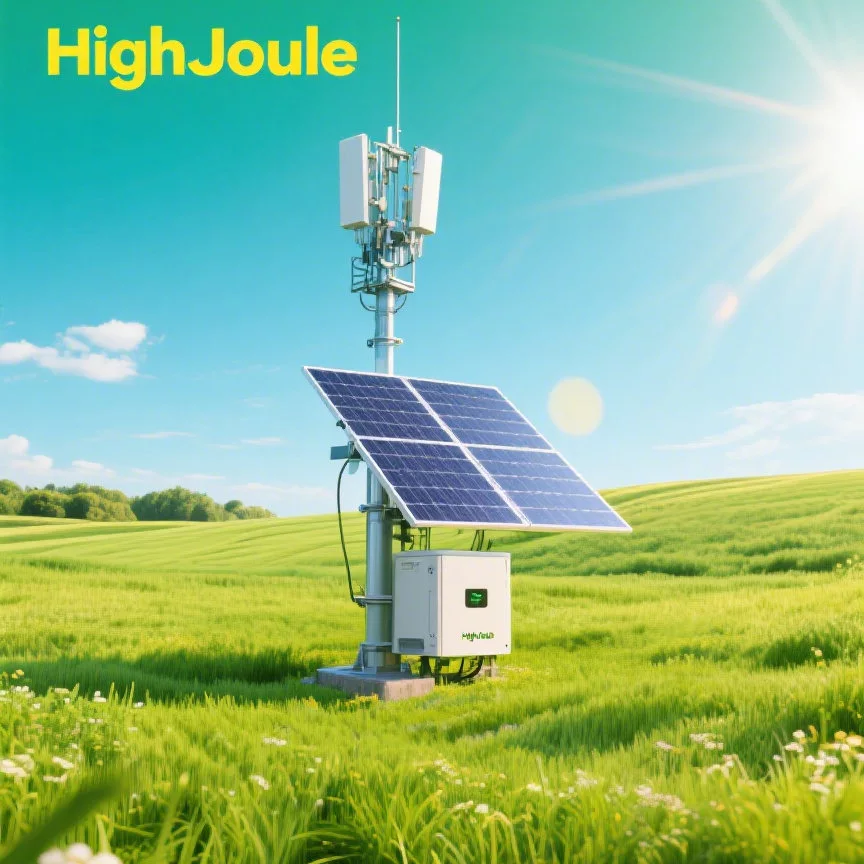
Certification Process: Step-by-Step EU Ecolabel Certification
EU Ecolabel certification comes with a step-by-step process to adhere to, which involves gap analysis, hardware transformation and complete reporting. HighJoule’s solution removes the guesswork from this process through modular base station system transformation to be in compliance with EU regulations within 12 weeks.
Why EU Ecolabel is Important to German Operators
For German telecommunication operators, EU Ecolabel certification translates into safety and compliance for future operations. Certified systems have the following benefits:
- Market access: Certification increases the level of success in competitive tenders and public procurement.
- Cost savings: EU subsidies and carbon credit incentives may be obtained, offering a return on investment within 3-5 years.
- Brand creation: EU Ecolabel branding enhances the image of sustainability and is attractive to consumers that are interested in green development.
Conclusion: Creating a Path to a Sustainable Telco Network Future
With global sustainability in ever-growing demand, EU Ecolabel certification is a key move towards the future for German base stations. Not only are HighJoule’s solutions meeting EU Ecolabel requirements, but they also provide energy savings, reduced carbon emissions, and a future-proof base to telecom operators. Be it replacing rural base stations in Bavaria or installing urban micro base stations in Helsinki, HighJoule’s solutions provide unparalleled flexibility, efficiency, and scalability.
Find Your Solar + Battery Storage Specialist Now!
* Fill out this form and our experts will help you find the perfect solar storage solution for your home or business.


